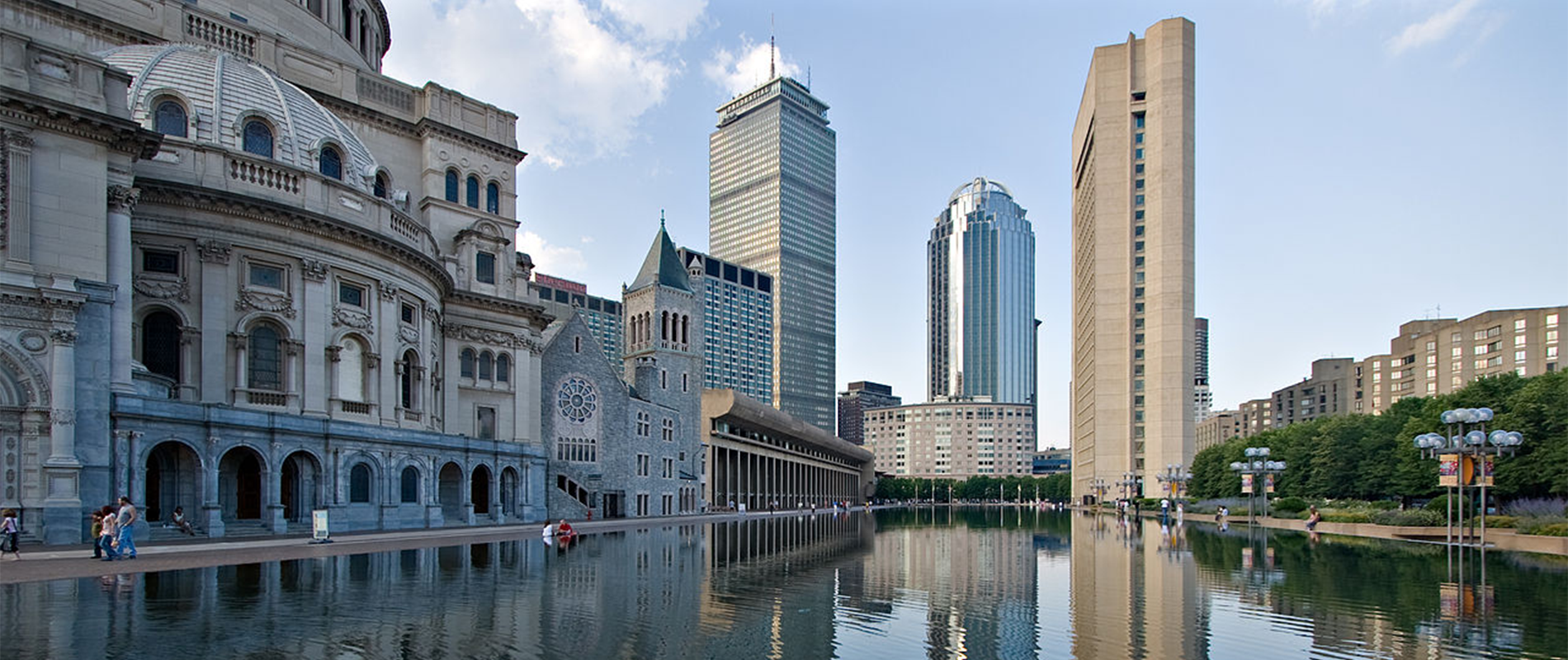One of the highest market-cap companies in the world is depicted in “The Social Network” as the product of a young man’s intense desire to upgrade his standing in the world of Boston institutions—by gaining entrance not to Harvard, where he was already enrolled, but to an exclusive Harvard “final club.” True, Harvard lies across the Charles River in Cambridge, but we won’t split hairs—the movie makes a telling point about the importance of affiliations, in this corner of the world.
Somehow, the two adjacent cities, with their combined population of 750,000, have ended up with a cohort of consequential institutions you might expect to find in a place three or four times larger. One result is a professional class for which direct affiliation with the various monoliths, or a couple of degrees of separation, is common reality.

Harvard University
And so you must legitimately own a garment imprinted with MIT, Harvard, Boston University, Massachusetts General Hospital, Tufts University, Boston College, the Kennedy Library, Northeastern University, Brigham & Women’s Hospital, the Museum of Fine Arts, the Christian Science Church, the Boston Pops, and so many more—or else be closely affiliated with someone who does.
What’s sometimes forgotten is that Boston-area achievers who serve those institutions have commercial and professional connection with, um, the rest of the world—and particularly with the Northeast region. Tradewind, as Boston’s go-to private aviation connection with New York City (with both scheduled shuttles and private charter options), pays close attention to the travel trends that Boston’s innovators and thought leaders tend to generate. It may be, of course, that more than residents of other cities, Bostonians value the flight home most highly—it returns them to the narrow streets and ivy walls that represent uniqueness and greatness to them.
“It’s human nature to want to identify yourself with something of consequence—something that’s widely recognizable,” says Robert Savage, professor of Irish history at Boston College and a product of the Boston suburbs. “The Boston area is just so dense with these things; it can be overwhelming if you haven’t learned to navigate it.”

Boston College
Arriving as a Harvard freshman from Southern California 30-odd years ago, John Kelley appreciated the relatively ancient history of Boston and Cambridge because it made his new environs understandable. “When you come from far away, you arrive here with some basic knowledge of the place, given how many old, well-known landmarks there are,” says Kelley, CEO of the sports-performance company CoachUp. “That makes it easier to get acclimated, if you’re not intimidated by it.”
This brings up the issue of how welcoming—or not—Boston can be. New arrivals could stare at vehicles with three or four showoff windshield stickers and a parking decal for some chic neighborhood, plus various other insignia bespeaking insider status, and feel alienated. Mark Twain famously said: “In Boston they ask how much does a man know, and in New York, how much is he worth.” That’s very nice, but in the Information Economy, knowledge and wealth are tending to merge, removing some nobility from the pursuit of higher learning and thus some of the solace a Bostonian might take in Twain’s observation.

Savage wonders if a movie set in any other city would feature an exchange like the one in “Gone Baby Gone,” in which the Boston street kid played by Casey Affleck questions Ed Harris’s character, a police detective, about his last name, Bressant. “It’s the kind of name they give you in Louisiana,” comes the answer, to which Affleck replies, “Oh yeah? I thought you were from here.” Those two words, “from here,” have clearly been a point of contention for the transplanted detective. “You might think that you’re more ‘from here’ than me,” he growls back, “but I’ve been living here longer than you’ve been alive. So who’s right?”
As longtime director of events at the John F. Kennedy Presidential Library, Amy Macdonald served as a guide to the city for a stream of noted writers, musicians, and thinkers. “There’s a certain type of very famous, very accomplished person who stands in that I.M. Pei-designed building with its amazing Atlantic Ocean view, relives the JFK presidency, and appreciates the high ideals Boston can breed,” says Macdonald. “The U.S. poet laureate, Billy Collins, told me the experience gave him tingles.”
The worldly types she met from New York and Los Angeles were too polite, in her estimation, to dismiss Boston as provincial and parochial, though they commented freely about how early the bars closed and the subways stopped running. “Their attitude,” Macdonald says, “seemed to be: ‘Even though you haven’t got much nightlife you’ve got these famous universities and hospitals, and that seems to make you happy—but I’m going back to my real city.’ ”

General Electric Boston Headquarters Rendering
Photo credit: General Electric, © Gensler
Kelley works in corporate offices down the road from where General Electric is creating, in his words, “their own micro-city” in the revitalized Seaport District. He feels GE’s relocation from Connecticut will do much to answer the question of whether Boston’s old-line institutions will continue to define the town.
“GE seems to have this whole question figured out,” Kelley says. “They’re building their headquarters as a village of knowledge and innovation; it’s not walled off, it won’t have ivy growing on it, so it’s got the feel of a global crossroads.” Sounds from that like the country’s 10th-largest employer will soon be its own institution in Boston—just not the sort of Boston institution people “from here” have long been used to.

